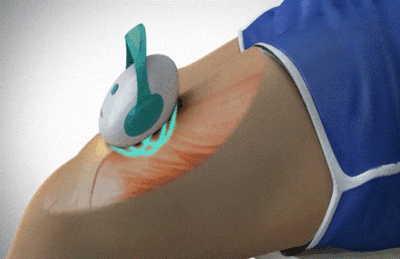Each body type is different in understanding how a disease will impact it. And some health issues are common to particular body types. Menstruation is a health problem typical to women, repeating itself every month.
Understanding how it can impact your hormonal health is essential, especially when the menstrual cycle is in full swing in a female body.
Menstruation refers to that time of bodily function when progesterone and estrogen levels drop, making the female body release vaginal fluid.
Menstrual cycle and diabetes are two conditions understood together in a female body. It is generally necessary to know how a diabetic female body deals with her hormones during her periods.
You may not realize that hormonal imbalance affects other body parts, making a massive difference in how the human body experiences bodily changes. There is an increased risk of imbalance when a person has diabetes.
If you are a woman diagnosed with diabetes at any level, your first concern would be how it may affect your uterine health. With menstruation, you may experience a rise and fall in blood sugar levels, directly affecting your diabetic health.
Facts To Know About Diabetes And Menstruation:
Menstrual cycle and diabetes are household terms that every woman is trying to understand. Not all women suffer from high blood sugar levels, but most women, especially in the US, have this condition. You need to understand several facts about how much your diabetic health is affecting the uterus and related problems:
- Most women in the US have diabetes as a health condition. The most common type is type 2 diabetes.
- Diabetes can elevate the risk of Urinary Tract Infections (UTIs) and yeast infection during the Menstruation.
- It leads to early menopause conditions. It can also be tough to manage diabetes in the menopausal age due to the constant rise and fall in blood sugar levels.
Impact Of Diabetes On Menstrual Health:
With every type of blood sugar disease, the impacts are different on uterine health. For example, type 1 diabetes may not cause excessive irregularity, while type 2 May. Look at how different types of diabetes impacts the menstrual cycle differently:
Type 1:
Women having type 1 diabetes do not need to worry about irregular periods or irregular flow of blood during periods. It is a rare case when irregularities occur with type 1 diabetes.
It also does not affect the age when menses usually start. The typical age is anywhere around puberty, i.e. 12-14 years. There were some reports of cases when periods began late due to diabetes.
Type 2:
Type 2 diabetes is usually risky for menstrual health. Unlike Type 1, women with type 2 blood sugar diseases may experience irregularity of occurrence and heaviness in the menstrual flow. There is an increased risk of anovulation with type 2 diabetes. It also affects gynecological health, including the risk of cervical cancer and other such problems.
General Impacts Of Diabetes On Gynecological Health:
There may be a link between how diabetes affects the blood sugar levels in the body and how it hampers the reproductive process.
- With menses, blood sugar levels increase, leading to cravings for carbohydrates and high-sugar foods. It is essential to be mindful of diet when you have diabetes. Menstruation causes unusual food cravings, which may harm your blood sugar health.
- Hormonal fluctuations may impact the glycemic index, which leads to insulin resistance in the body, causing a harmful rise or fall in blood sugar levels.
- Weight management may get complicated when both conditions strike together. Especially when a woman is menopausal, managing her weight and body fat with diabetes may be challenging.
- Blood sugar diseases can cause early menopause, leading to excessive hormonal imbalance causing body aches, gynaecological problems, UTIs and other life-threatening uterine disorders.
Bottomline:
Diabetes and menstruation can affect each other in strange ways, impacting the body as a whole negatively. You may need to be extra careful with your period if you suffer from high sugar. Hormonal changes can trigger blood sugar and glucose levels, affecting general health.










